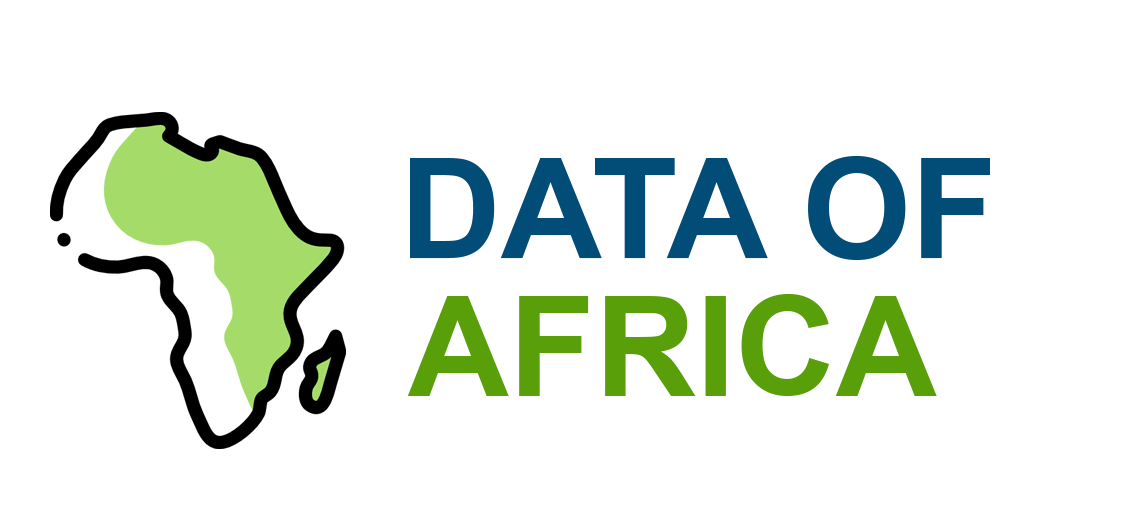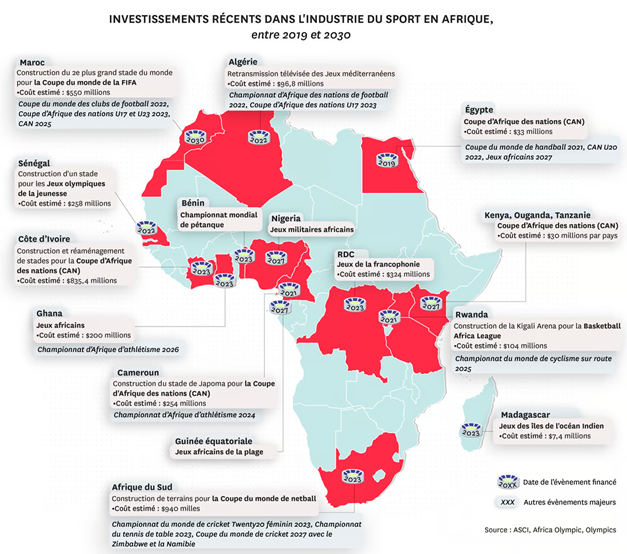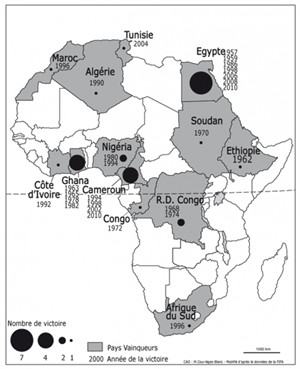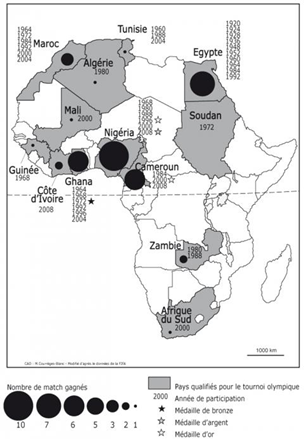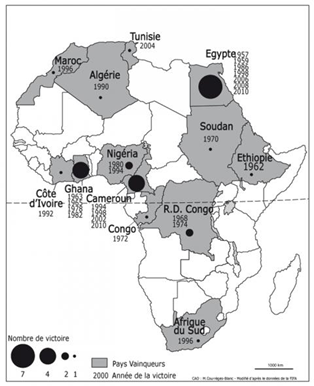All fifty-four sovereign countries on the continent have a national football team that is part of the Confederation of African Football (CAF). Egypt has won the Africa Cup of Nations seven times, followed by Cameroon with five titles and Ghana with four. South Africa hosted the 2010 FIFA World Cup, becoming the first African country to do so. However, local clubs and national leagues still face challenges such as lack of infrastructure and funding.
Rugby union is popular in South Africa, Namibia, Zimbabwe, and Kenya. Nine African teams are ranked among the top fifty in the World Rugby rankings. The continental competition is the Africa Cup of Rugby Union, established in 2000. As of 2016, the most successful teams are Namibia (6 titles), South Africa (3 titles, but only participated five times due to their overwhelming dominance), Morocco and Kenya (2 titles each), and Uganda and Zimbabwe (1 title each). There is also a second-tier competition called the Africa Cup 2 for lower-ranked teams.
Cricket is popular in a few regions. South Africa and Zimbabwe compete at the highest level — Test cricket — ranking 3rd and 12th in the world, respectively. Kenya was the leading African team at the lower tier, in One Day Internationals. The three countries jointly hosted the 2003 Cricket World Cup. Namibia is the other African nation that participated in the 2003 World Cup. Morocco hosted a cricket tournament in 2002, but its national team has never qualified for a major competition.
The African Games, recognized by the International Olympic Committee, are held every four years by the Association of National Olympic Committees of Africa. However, they do not always feature the continent’s top athletes.
The continent’s position on the international sports stage remains minor when considering its performance at the Olympic Games.
Modern, codified sports have developed on the continent largely through state initiatives rather than civil society — in contrast to the West. Under political influence, sport serves as a strategic tool and is, for example, used to promote Pan-Africanism. It is also a component of international politics in Africa, such as through the construction of stadiums by the Chinese. One of the most well-known examples of the intersection between sport and politics is rugby, which became a tool for unifying post-apartheid South Africa and a symbol of the country’s international stature with the hosting of the 1995 Rugby World Cup. Additionally, sport is viewed as a means of fostering social development and, as such, benefits from international aid.
For more information :
- https://fr.wikipedia.org/wiki/Portail:Afrique
- https://en.wikipedia.org/wiki/Africa
- https://africacenter.org/
- https://journals.openedition.org/etudesafricaines/
- https://etudes-africaines.cnrs.fr/
- https://journals.openedition.org/etudesafricaines/
- https://www.afdb.org/fr/documents-publications/economic-perspectives-en-afrique-2024
